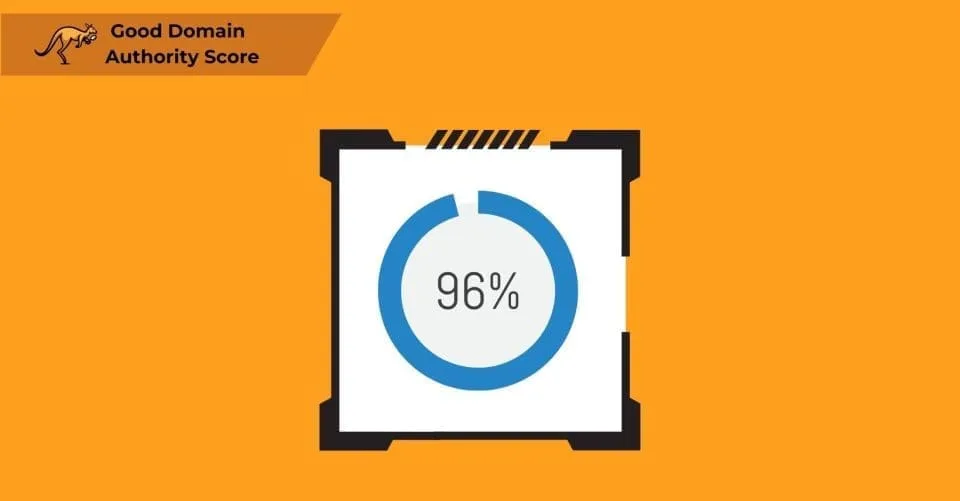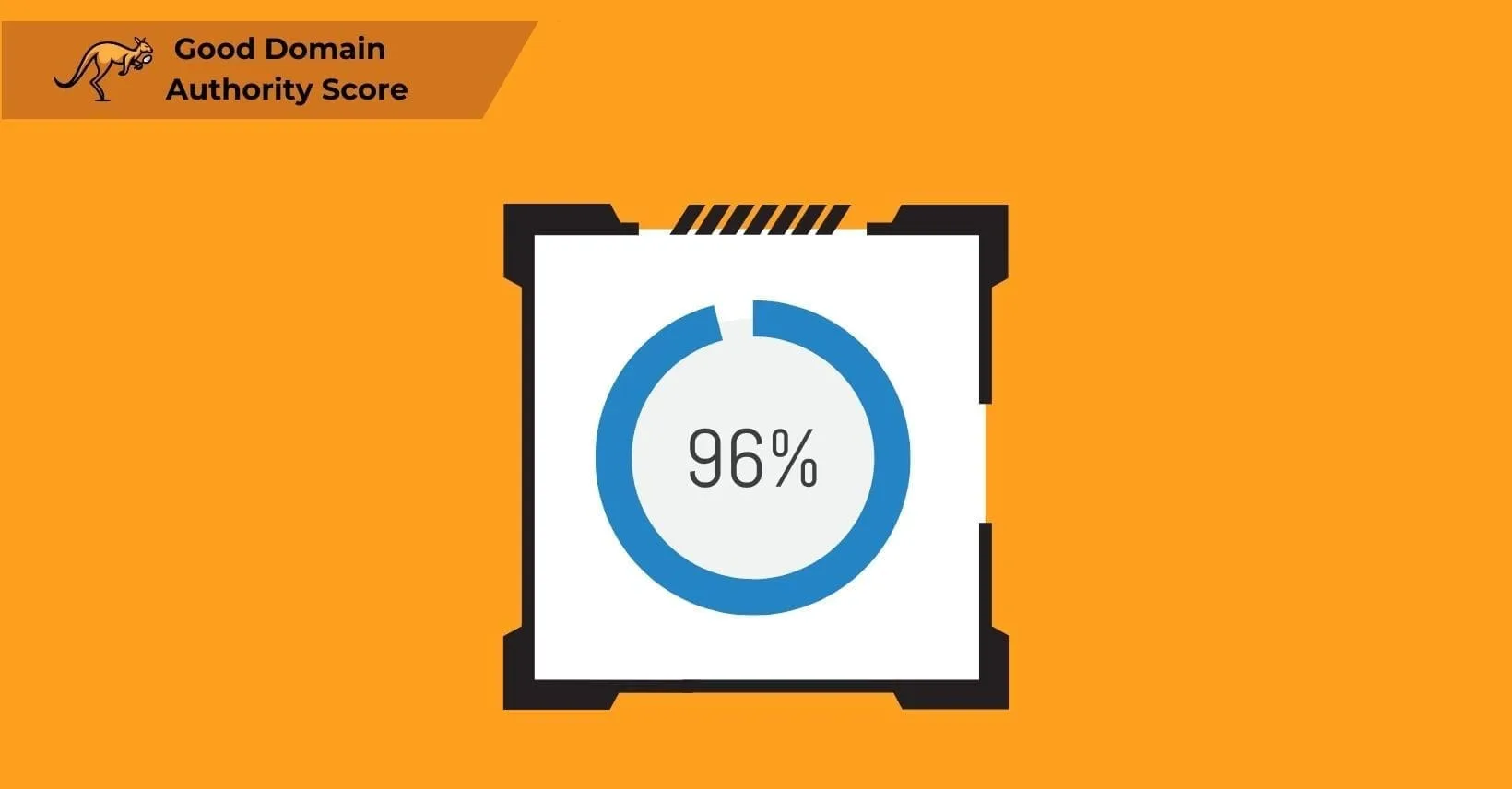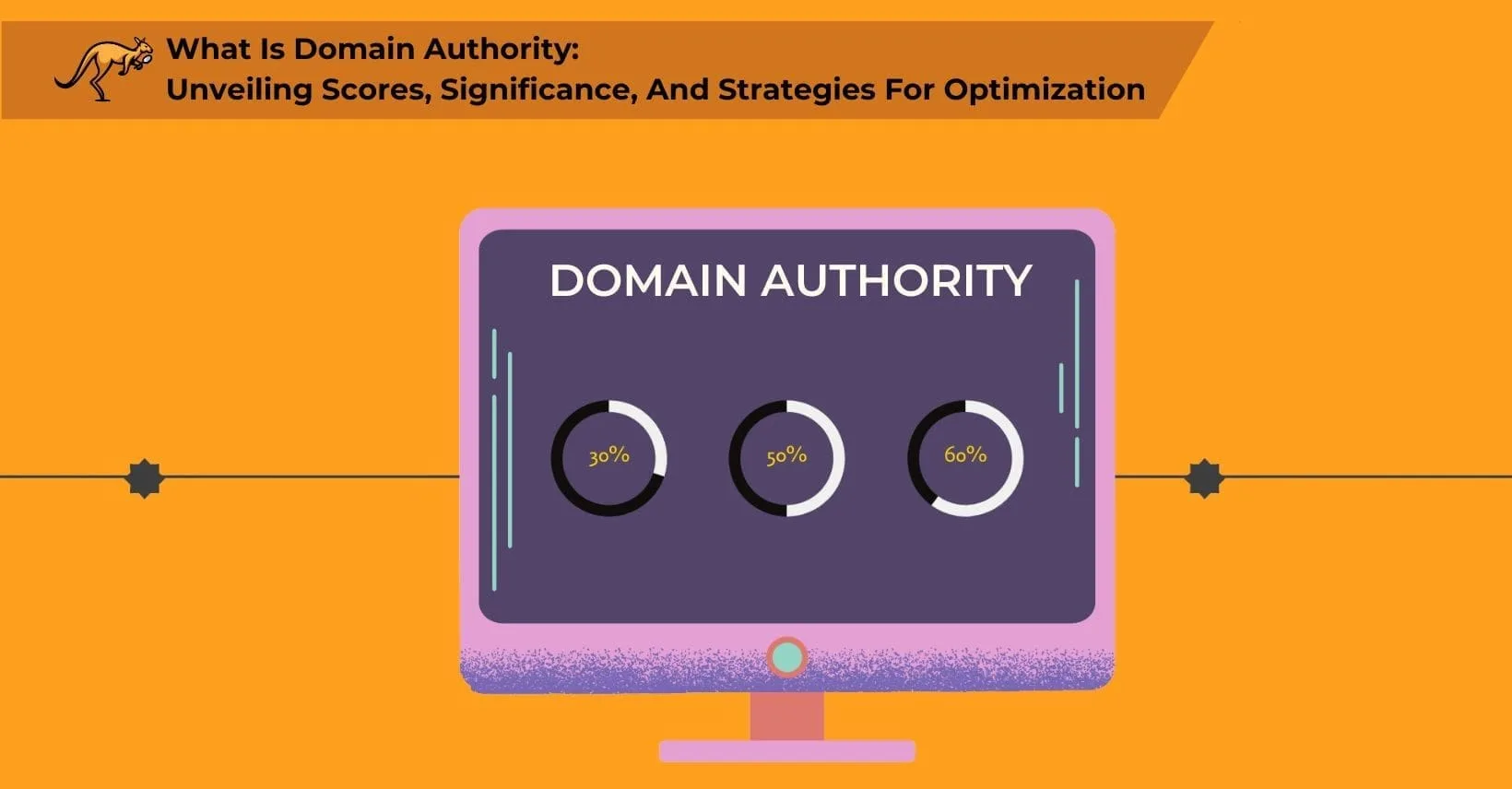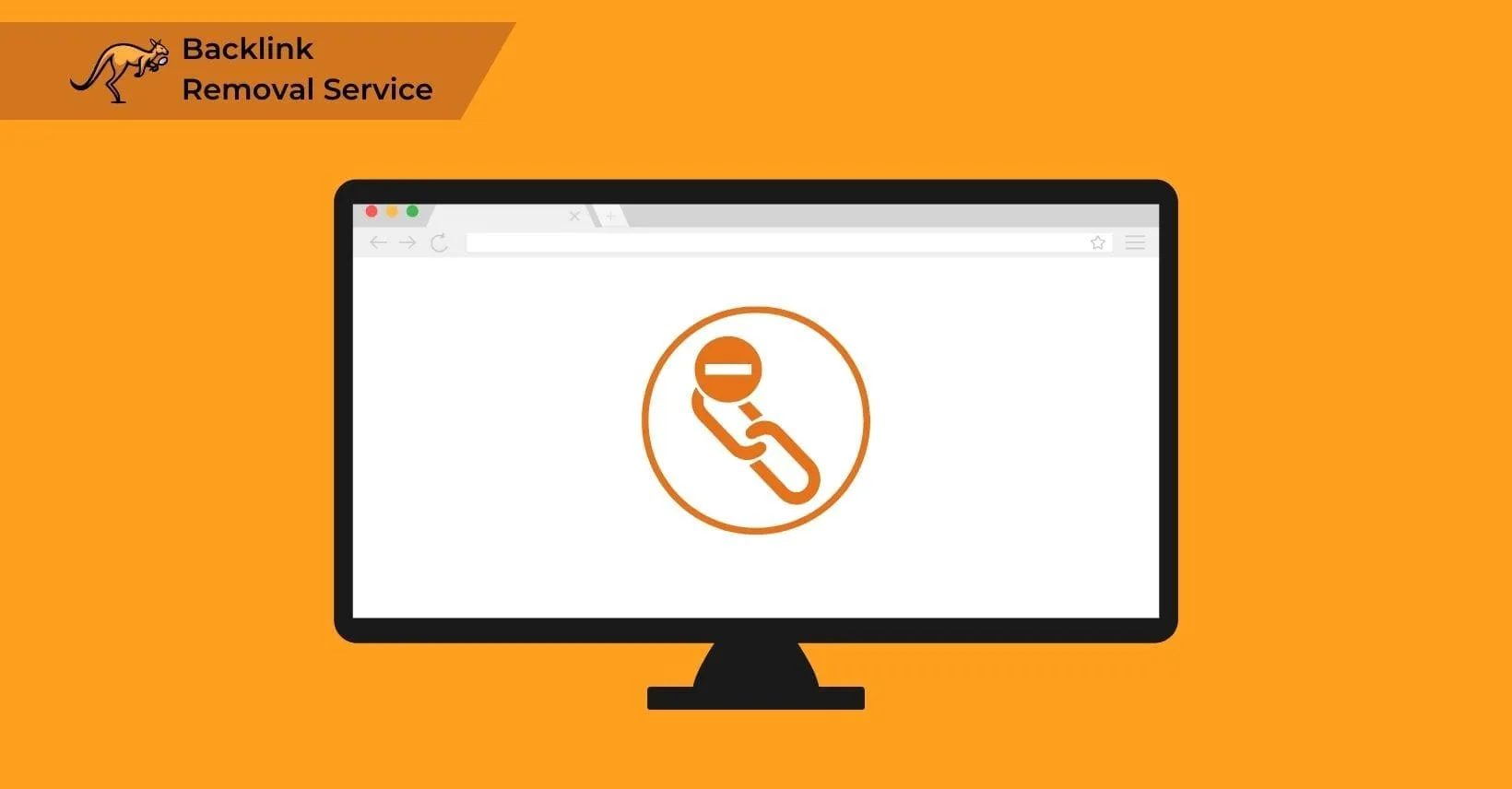What Is Domain Authority: Unveiling Scores, Significance, And Strategies For Optimization
Domain authority is essential for marketing your website and maximizing your online visibility. Today, most businesses gain their customers through online searches. People typically use search engines like Google when looking for services or products, emphasizing the need for your site to appear prominently in these results. Search engines use multiple criteria to order their listings, with domain authority being a key factor. By enhancing your site’s domain authority, you can achieve higher placements in search results, attracting more potential customers. We’ll explore how domain authority can influence your business’s online success and provide strategies to improve your rating. What is domain authority, and how does it function in boosting your website’s visibility? Let’s examine this metric closely.
What Is Domain Authority?

Domain Authority (DA) is a metric created by Moz to predict a website’s ranking on search engine results pages. Assigned a score from 1 to 100, DA estimates the potential placement of a website in SERPs, where a higher score suggests a greater likelihood of appearing near the top. Although not a direct factor in Google’s ranking algorithms, this score is a valuable indicator for search engine optimization efforts to enhance visibility. As website traffic increases, so too do the opportunities for acquiring new customers. Additionally, DA helps assess competitor performance and strategize on improving one’s market standing. It informs website owners about necessary improvements to boost their search engine ranking. Evaluating these improvements drives exploring how the scoring system is structured and what factors contribute to a higher DA.
Multiple SEO tools, including Moz, now offer domain authority (DA) scores and widely adopted metrics for assessing website credibility. Websites monitor their domain authority and can also evaluate the authority of individual pages to fine-tune their marketing strategies and gauge competitor performance. The DA score, ranging from 1 to 100, incorporates over 40 factors. However, only a few are crucial for teams aiming to enhance their search engine visibility and audience reach. These key components, such as MozRank and MozTrust, and analyzing a site’s link profile and its root domains’ breadth are important in shaping a website’s domain authority.
MozRank
This refers to the number of websites linking to a particular web page, as well as assessing the quality of these links.
Link Profile
This relates to all linking domains, both internal and external, towards one website to showcase relevance and reliability.
A domain’s authority is also considered when assessing your link profile and, therefore, needs to be considered when generating hyperlinks.
Root Domains
These refer to unique backlinks used on your website.
With this, even if your website has a billion new links, if these all come from the same source, they are considered to be one root domain.
To improve your website’s domain authority, you need to not only obtain a good amount of links but ensure these all come from different sources for more linking root domains to appear in your assessment.
MozTrust
It is not only important to link your content to relevant websites but to ensure that these are trustworthy sources in terms of site authority as well.
SEO tools like Moz will assess the trustworthiness of all linking domains on your website.
Connecting with a governmental website, for example, will translate to a better trustworthy score than a newly launched independent blog.
Site Structure and User Friendliness
When you engage with SEO, you quickly realize that a well-structured website is essential. Not only does this structure need to cater to Google’s algorithms to improve domain authority (DA) scores, but it must also enhance user accessibility and experience. A website that is simple to navigate encourages longer visits and easier access to information, which is beneficial both for SEO and user satisfaction. Linking your site with authoritative sources, like government websites, further boosts your credibility over links to less established entities. As we look at the factors that contribute to a site’s authority, the final DA score will reveal the effectiveness of these strategies.
The Final DA Score
Moz, a key player in SEO tools, provides factors essential for assessing domain authority applicable across all websites. Whether you use Moz or another SEO tool, link quality and site structure remain critical in evaluating your domain authority. Each tool may label and prioritize these factors differently, yet their role in influencing your site’s search ranking is universal. For instance, connecting with established, reputable sites like governmental portals often boosts trust scores more effectively than links to new independent blogs. Such strategies are central to optimizing marketing efforts and allow us to explore what constitutes a good domain authority score.
What Is A Good Domain Authority Score?

As we have mentioned, domain authority (DA) is scored from 1 to 100 on all tools.
Many factors are assessed to provide a singular domain or page authority score to a website, which can then be used to determine the search engine ranking of a website and how much traffic it will obtain compared to others in the same market.
Domain authority (DA) is evaluated on a scale from 1 to 100. Though not directly influencing Google’s ranking algorithms, this metric is crucial for website owners to identify areas needing improvement and strategize marketing efforts effectively. Improving a website’s domain authority can enhance its visibility and position on search engine results pages (SERPs). The DA scale classifies scores as follows:
- Below 30: Poor
- 30 to 40: Below Average
- 40 to 50: Average
- 50 to 60: Good
- 60 to 70: Very Good
- Above 80: Excellent
Websites generally aim for a score above 60 for optimal performance. Notably, increasing DA is more feasible from a baseline of 30 to 40 due to the broader scope for improvement. Although advancing from a higher base like above 70 presents challenges, connecting with authoritative sites such as government domains can boost credibility more effectively than linking to newer, less established blogs. Consider some practical examples of how scores have been effectively raised in various contexts.
Score Examples
Domain authority scores vary widely, illustrating the influence websites can wield. High authority entities like Google, Microsoft, and Apple are well-established with extensive histories and robust reputations. In contrast, newer sites typically have lower domain authority due to a shorter presence and fewer accomplishments to assess. For your site, a practical approach involves analyzing competitors within your niche rather than these tech giants. Observing the rankings and domain authority of closely aligned sites provides insight into effective strategies and positions your content to better meet the needs of your audience. This focus on comparative domain authority enhances your site’s performance and underscores the importance of understanding why domain authority matters in digital strategy.
Why Domain Authority Matters
While not an official ranking metric for search engines like Google, domain authority serves as a critical gauge for assessing marketing strategies and pinpointing areas for content enhancement. Once determined, your domain authority score reveals specific aspects of your website that, if improved, could enhance visibility and drive more traffic your way. In today’s digital world, most searches begin on search engines. Whether consumers search for products or services, they rely heavily on these platforms.
A website’s visibility in search results largely depends on its domain authority, influenced by various characteristics of its content and structure. Websites with high domain authority usually appear at the top of search engine results pages (SERPs), capturing the most organic traffic. Although domain authority isn’t a direct factor in Google’s algorithm, it significantly influences overall website performance and the likelihood of being recommended in search results. Seeking a penalty removal service can also restore your site’s standing, emphasizing the interconnectedness of domain authority and search rankings.
Building your domain authority involves enhancing several evaluative factors that affect how it’s calculated, which could boost your online visibility and attract more customers. This initiative could be especially beneficial in creating lasting connections, such as linking with reputable websites, which often yields a higher trust score than associating with less established entities. These efforts improve your site’s trustworthiness and prepare it for better performance in the competitive arena of digital marketing. Now, let’s look at the strategies to improve your domain authority and secure a prominent position in search rankings.
How To Build Domain Authority (DA)
With a clear understanding of domain authority and its mechanics, it’s time to enhance your website’s standing. Begin by assessing your current domain authority and comparing it with your primary competitors to identify effective strategies for improvement. Several methods can boost your page authority and improve search engine rankings, such as establishing connections with authoritative governmental sites, which are viewed more favorably than links from less established sources. Strengthening these connections not only elevates your trustworthiness but subtly paves the way for refining your link profile, a critical step for further elevating your site’s visibility and credibility.
Work On Your Link Profile
A website’s link profile significantly influences its domain authority, making it essential to focus on improving this aspect. Buy backlinks from authoritative websites are crucial for boosting domain authority. When they originate from reputable sources, these inbound links not only enhance page authority but also improve search engine rankings. It’s important to diversify your link sources, avoiding reliance on the same domains repeatedly. Search engines evaluate both the quantity and variety of referring domains through tools like the Link Explorer Web Index.
Connecting with credible sources, such as government websites, can lend more credibility to your site than links from less established blogs. By ensuring a diverse and robust link profile, you set a solid foundation for producing and presenting content that resonates with your audience and maintains your site’s competitiveness.
Create Quality Content
To enhance your website’s domain authority, effective content creation is essential. It serves as a cornerstone by attracting and engaging your target audience, leading to increased shares and backlinks from reputable sites with high page authority. Such quality content fosters broader distribution and enriches your backlink profile, thereby boosting your search engine rankings. Moreover, compelling content encourages visitors to linger longer on your site, a factor that search engines like Google favor when determining rankings. The credibility of these links also varies; a link from a governmental site, for instance, holds more weight than one from a fledgling blog. As these aspects contribute to a better user experience, they naturally align with strategies to optimize your website’s loading speed, thereby enhancing overall user satisfaction.
Improve Website’s Loading Speed And User Experience
Multiple factors such as user experience and site structure influence a domain’s performance. A website with slow load times and poor organization will likely see diminished SERP rankings and a lower domain authority. Optimizing your site’s structure simplifies user navigation. It enhances Google’s ability to index your content, a critical step in asserting relevance. Rapid accessibility to needed information is crucial as online competition intensifies; slow pages discourage user engagement, pushing potential traffic to alternative sites. Leveraging domain authority metrics can spotlight areas for improvement and identify content overlooked during indexing processes. Observing the layout of successful websites can provide valuable insights, leading to enhanced trustworthiness, especially when links from authoritative external sites like government platforms are incorporated.
Website Improvement Summary
To boost your website’s domain authority, evaluate your current authority metrics to pinpoint areas that need work. By analyzing the success factors of top websites in your industry, you gain valuable insights into what drives their high authority and relevance. Although Google doesn’t directly factor domain authority into its ranking algorithms, sites with higher domain authority scores tend to appear more prominently in search results, attracting more visitors. Importantly, establishing links with well-known sites, especially governmental ones, can substantially elevate your site’s perceived trustworthiness over connections with obscure or new independent blogs. Engaging with such credible domains often serves as a stepping stone toward optimizing your website’s credibility and visibility. As SEO agencies specialize in these strategies, they play a pivotal role in enhancing domain authority.
How SEO Agencies Enhance Domain Authority
SEO agencies are crucial in optimizing websites to increase their visibility in search engine results, particularly by enhancing Domain Authority (DA). They begin by conducting thorough audits to evaluate your existing DA score and pinpoint deficiencies in your link profile and site structure. These agencies then implement targeted link-building strategies to acquire high-quality, relevant backlinks from trusted sites, strengthening your link profile. Beyond link building, they develop content strategies to attract inbound links and boost user engagement, both of which indirectly improve DA. They also undertake technical SEO enhancements to optimize site architecture, mobile compatibility, and page load speeds. The process requires continuous monitoring and adjustments to adapt to search engine algorithm changes, keeping the strategies effective. Partnering with Searcharoo specifically aligns with these goals, leveraging their expertise to further enhance your domain authority effectively
Why Partner with Searcharoo for Domain Authority Improvement
Partnering with Searcharoo for your SEO needs promises to elevate your website’s Domain Authority (DA). With a track record of success across a broad client base, Searcharoo expertly boosts DA using white-hat methods to avoid penalties and ensure lasting improvements. Their services are customized to align with individual business objectives and include strategies such as keyword research, content creation, social media management, and PPC campaigns. With a commitment to transparency, Searcharoo keeps clients updated on the progress and outcomes of their SEO campaigns. These efforts improve DA and enhance overall web presence, paving the way for further insights into effective website improvement strategies.
Wrapping Up: The Roadmap to Higher Domain Authority
In this guide, we have answered the common query of what is domain authority and how it can work for your website.
Domain authority measures how your website will rank on SERPs and, therefore, how much traffic can be obtained from this particular platform. Although it is not an official ranking factor on Google, it is a good metric to keep track of as it can highlight areas that require additional attention on your website as well as focus your marketing efforts.
Websites with a high DA are considered to be the best results and get the most traffic.
To improve your business and ensure you are getting the attention you desire online, you need to continually improve your domain authority.





